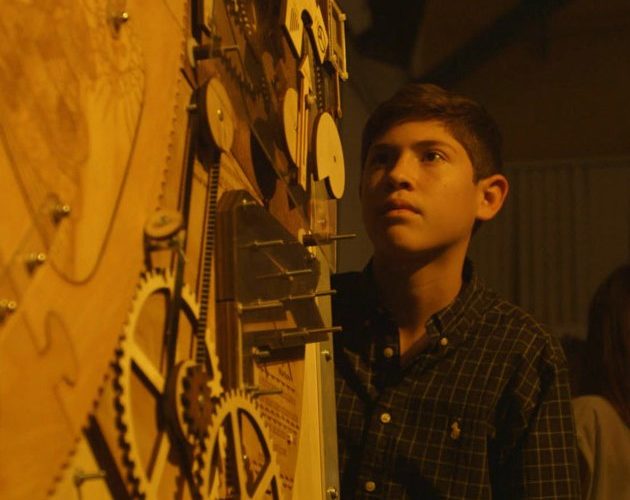There has yet to be a great documentary about education reform. A politicized issue if there was ever one, Greg Whitely, director of Mitt and New York Doll tries, chronicling the students, teachers, administrators and parents of San Diego’s High Tech High, a free form school that encourages leaning by doing in Most Likely to Succeed. Following a year in the life of the institution, which has moved beyond the bell/period system into a collaborative approach to learning that mimics what things might be like in a tech start-up, the levels of hierarchy are collapsed. Students are given freedom and independence to succeed or fail while assessments go beyond the traditional grading system and include categories such citizenship, development and confidence. All valuable traits but what happens when these kids go off to college – will they be prepared for the lecture halls? This kind of collaborative seminar approach usually doesn’t happen until you’re sitting with four graduate students around a conference table in an obscure seminar.
Focusing on high school, and this high school in particular, Whitely takes a conversational tone. The mood is far more mellow than the alarm bells rang in Davis Guggenheim’s Waiting for Superman while the filmmaking is a little more objective than The Rule, a documentary chronicling the work of St. Benedict’s prep school in Newark, NJ. Here, parents do raise objections about what students are learning in High Tech High, which deviates from the prescribe state-approved curriculum. Teachers aren’t given tenure, instead they’re hired on year-long contracts and granted academic freedom.

Whitely seems to show little doubt in Most Likely to Succeed: while traditional frameworks developed centuries ago may need to be rethought in favor of a kind of hyperlink approach connecting multiple disciplines within a school day, it may have its drawbacks. For instance, we rarely see things tried by administrators that don’t work, or moments of doubt amongst instructors. They are interesting presences on camera, including Scott Swaaley and Mike Strong, an engineering and a humanities teaching team that incorporate disciplines. Students in their track design an exhibit that represents the fall of civilizations throughout time, physically engineering a narrative represented in machines verses text.
Warm, personal, and direct in its approach, Most Likely To Succeed, like Waiting for Superman, The Rule and The Lottery before it doesn’t seem to have all the answers. Challenging the industrial model of mass education, it’s encouraging to see a school taking an individualized and personalized approach. While students compete against each other, working hard to present work from an installation to performances (one group adapts Trojan Women into an all-female performance set in modern-day Pakistan), the picture is a little too rosy. However, it’s a conversation worth having as the US looks to improve education outcomes. Now, if only we could get beyond the silliness of politically imposed standardized exams that don’t encourage real intellectual exploration like they do at High Tech High.
Most Likely to Succeed screened at the Montclair Film Festival and is seeking distribution.

